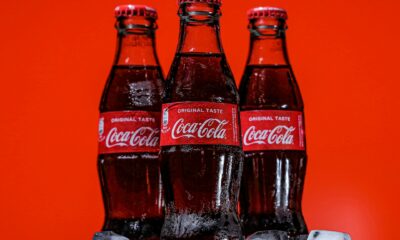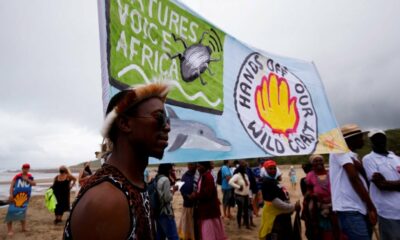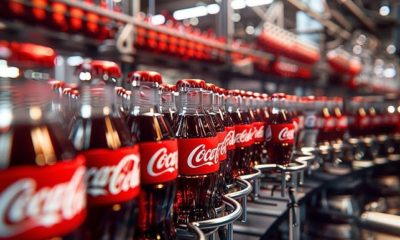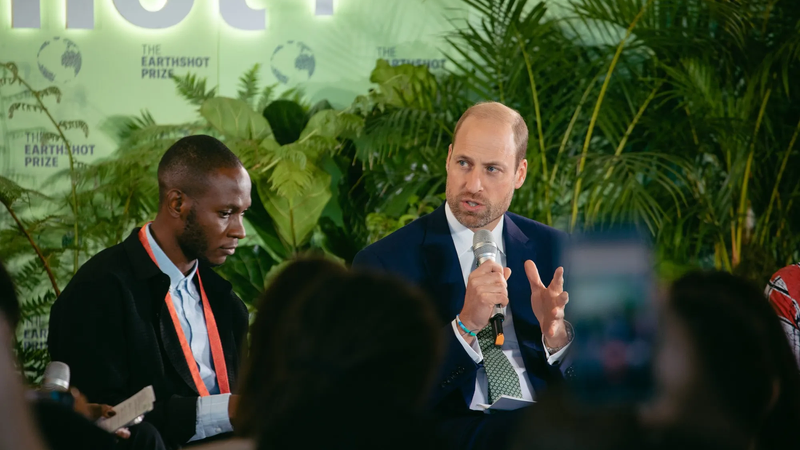Business
Greenpeace Tells Coca-Cola to Ditch Plastic and ‘Cap It’ for Good
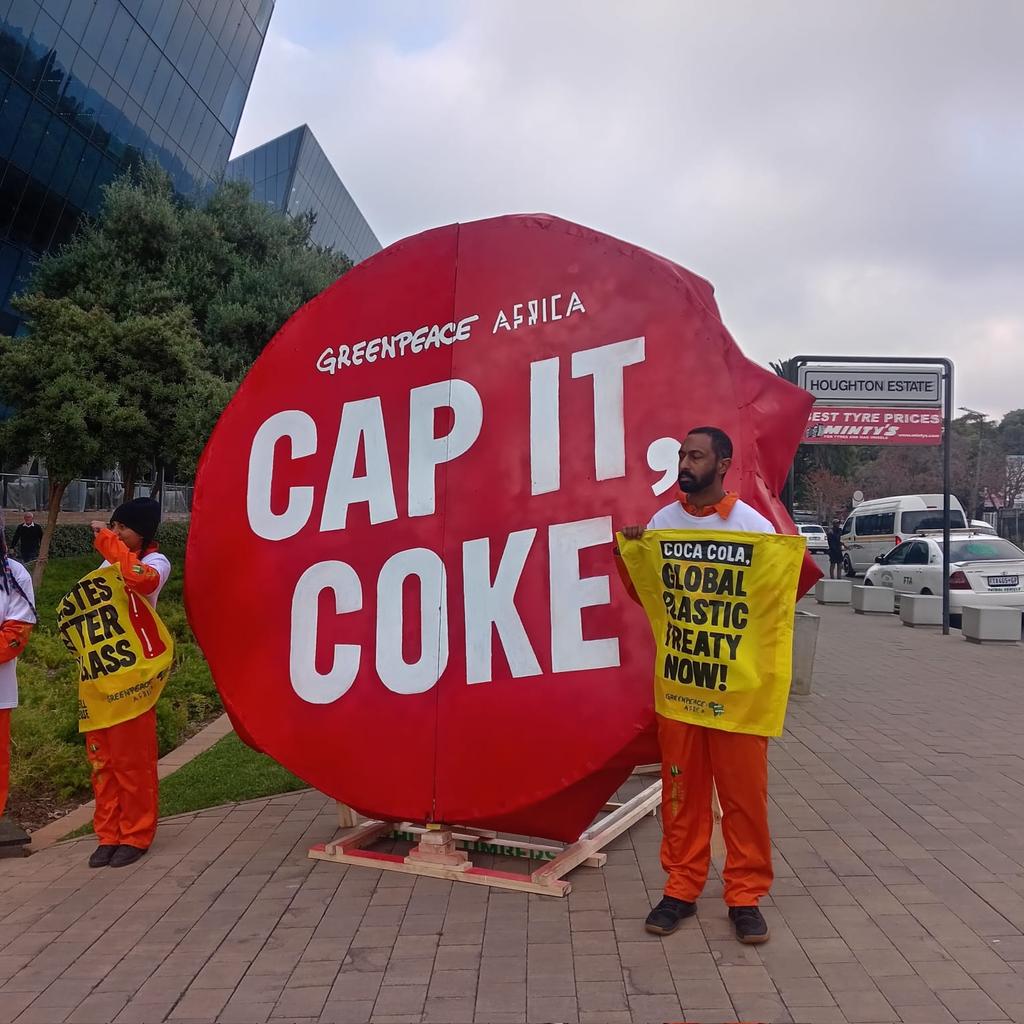
In the heart of Johannesburg, a giant red bottle cap made a bold statement in front of Coca-Cola’s offices. It wasn’t just a prop—it was a protest. Greenpeace Africa used the visual to slam the beverage giant’s massive plastic footprint, demanding a shift to reusable alternatives like glass and tins.
The protest, held on World Environment Day, aimed to send one clear message: Coca-Cola needs to stop capping the planet with plastic waste.
Billions of Bottles, One Planet
According to Greenpeace, Coca-Cola produces a staggering 120 billion plastic bottles every year. That’s more than 10 billion bottles a month many of which don’t get recycled and end up polluting oceans, rivers, and landfills.
“Most of it will end up in the environment and in the marine ecosystem,” Greenpeace’s Hellen Kahaso Dena told reporters. “We are here to say, enough is enough.”
Activists say this level of plastic production is unsustainable—and Coca-Cola, as the world’s biggest plastic polluter for six years running, should be leading the charge for change.
The Recycling Myth
Coca-Cola has long touted its recycling efforts, but Greenpeace calls that narrative “greenwashing.”
“Only about 9% of plastic actually gets recycled,” Dena said. “The rest? It pollutes our environment, clogs our waterways, and chokes wildlife. Recycling is not the solution to overproduction.”
Instead, the group is calling on Coca-Cola to go back to basics—reusable packaging like glass bottles and tin cans, which have a much smaller environmental footprint.
Broken Promises and Backtracking
Greenpeace also blasted the company for scaling back its environmental commitments. After global talks to create a Global Plastic Treaty stalled last year, Coca-Cola quietly rolled back its pledge to make 25% of its packaging reusable by 2030.
“That’s not leadership it’s regression,” said Dena. “Plastic is a fossil fuel product. Reducing its production is critical not just for pollution, but for the climate crisis as well.”
Greenpeace is urging Coca-Cola to support the next round of treaty negotiations set for August in Geneva and to push for legally binding limits on plastic production.
South Africa’s Plastic Problem
South Africa is no stranger to the consequences of plastic pollution. From overflowing landfills to plastic-filled rivers and beaches, the country faces its own waste crisis. Despite national campaigns and cleanup efforts, corporate accountability remains a missing piece of the puzzle.
Local environmental groups applauded Greenpeace’s action, with many social media users calling for a boycott of single-use plastic products and demanding tougher legislation.
One X (formerly Twitter) user wrote, “It’s 2025. Why are we still drinking soda from bottles that’ll outlive our grandkids?”
A Global Fight, A Local Stand
Coca-Cola has deep roots in South Africa, with its iconic branding found in every township, taxi rank, and corner store. But Greenpeace’s protest is a reminder that with great reach comes great responsibility.
The environmental cost of convenience is no longer a distant issue—it’s here, it’s local, and it’s getting worse.
As the world grapples with climate change and plastic pollution, the Johannesburg protest asks a simple but powerful question: If Coca-Cola won’t lead the way on reusables, who will?
{Source: FMT}
Follow Joburg ETC on Facebook, Twitter , TikTok and Instagram
For more News in Johannesburg, visit joburgetc.com

